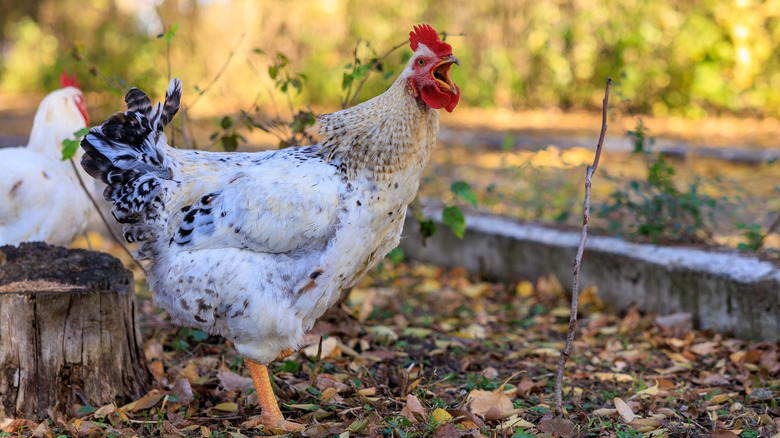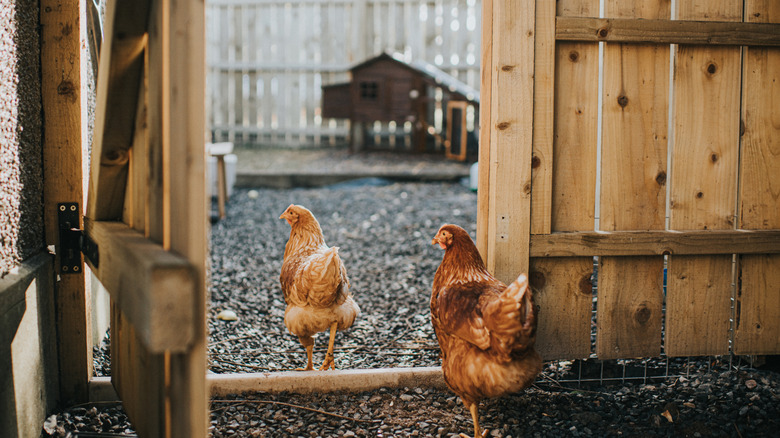Using Chickens As A Natural Tick Solution Has A Downside
Ticks in yards pose serious problems. They can carry illnesses like Lyme disease, making outdoor spaces risky for humans and pets. These pests thrive in grass, leaf litter, and shaded areas, turning many yards into the perfect habitat. Without proper tick control measures, infestations can quickly spread, increasing the chance of bites and illnesses. Homeowners with young children and pets often look for chemical-free tick prevention, as pesticides designed to rid a yard of ticks tend also to be harmful to humans and animals. Natural methods, such as using tick-repelling plants and spraying essential oils, are two popular alternatives to harmful pesticides. Another method people turn to when trying to rid their yard of ticks is getting chickens. Chickens, as well as other birds like ducks and turkeys, enjoy snacking on ticks, which may help with tick control. The downside to using chickens to rid your yard of ticks is that, if you don't take the proper precautions, they may end up attracting more ticks than they consume.
In addition to being food for the pests they are supposed to be eating, they can contract tick-borne illnesses just like humans and pets. These illnesses don't infect chickens when they consume ticks, but rather when the ticks latch onto their bodies. To make matters worse, chickens are vulnerable not only to existing ticks in your yard, but they can also attract fowl ticks, a species closely associated with backyard birds.
How to keep ticks from feasting on your backyard chickens
If you want your backyard chickens to prey on ticks instead of being tick food, there are a couple of things you can do. Applying food-grade diatomaceous earth (DE) to your chicken coop is a popular way to kill ticks and prevent infestations. To use DE, vent your coop by opening all doors and windows and spreading the powder all around, focusing on corners and crevices. Be sure to wear a mask and eye protection. Since ticks often make their nests in protected places, like cracks and crevices, it's also helpful to caulk board joints and fill in knot holes around your chicken coop, taking care to wipe the caulking clean so your chickens can't peck it. This will limit nesting areas, as well as deter ticks from entering the coop.
There are also other tick-control strategies to use alongside, or instead of, backyard chickens. Making landscaping changes such as cutting your grass short, raking leaves, and keeping potential nesting structures like picnic tables and swingsets away from your yard's wooded areas will all help reduce the tick population. Cutting back bushes and trees to let more sunlight into your yard can also help, as can sprinkling DE around your lawn. Controlling the rodent population in your yard, as well as removing bird baths and bird feeders, can also help keep ticks away.

